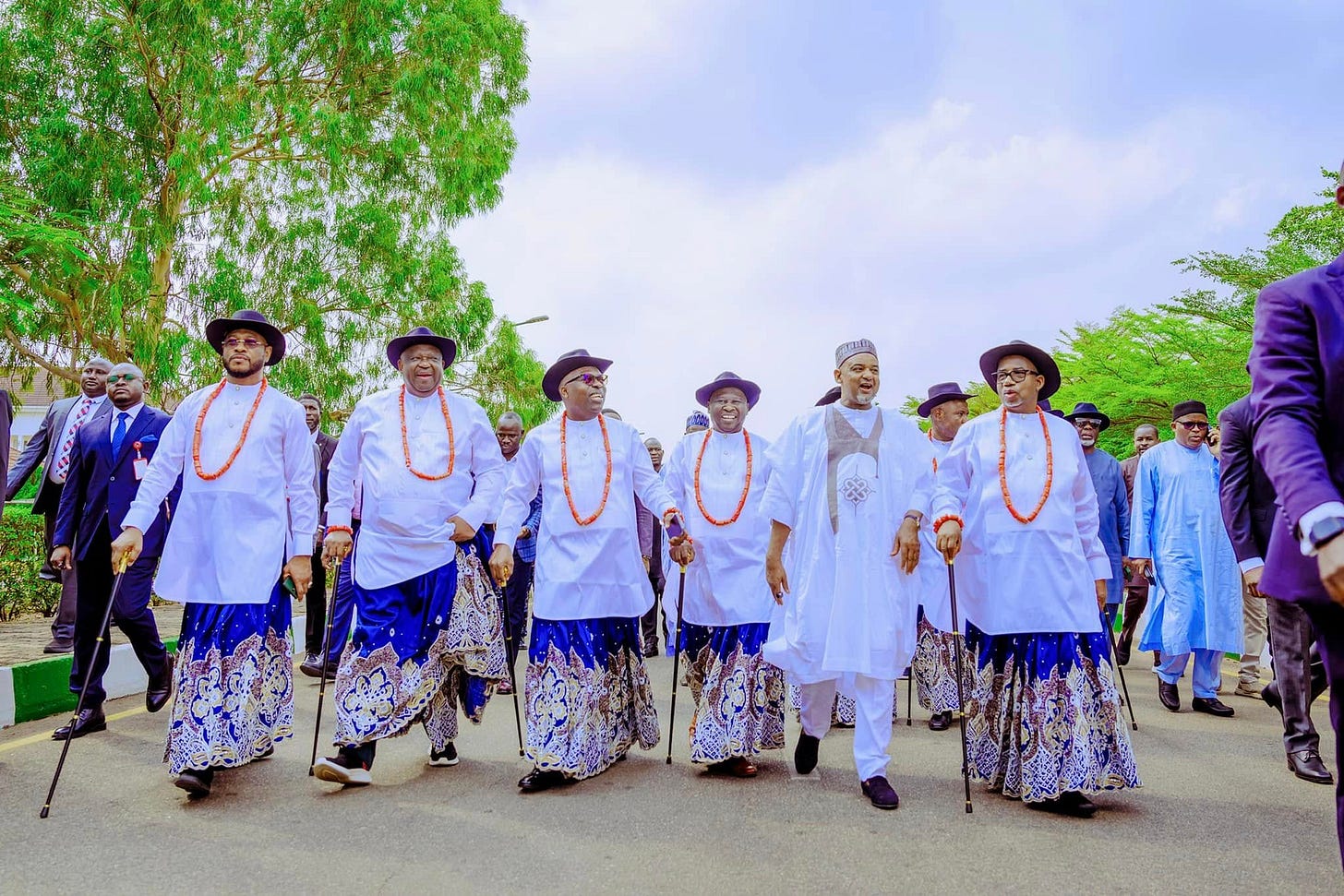Who Will Save The PDP? By Odiawa Ai
The political atmosphere in Nigeria is shifting dramatically, and the once formidable Peoples Democratic Party (PDP) is finding itself at a critical juncture. The exodus from the party has escalated from a mere trickle to a significant flow, raising the urgent question: Who will save Nigeria's oldest surviving opposition party?
In recent weeks, the PDP has witnessed a series of high-profile defections that have rattled its foundations. Notably, Oluwole Oke, a six-term veteran in the House of Representatives from Osun State, has departed, marking a significant loss for the party. Adding to the turmoil, Sheriff Oborevwori, the Governor of Delta State, has also switched allegiance to the All Progressives Congress (APC), citing a desire for “development” as his rationale. This shift is emblematic of a broader trend, as 216 grassroots members and several community leaders in Jigawa quietly slipped away during what was supposed to be a citizen engagement forum, only to find themselves under the expanding umbrella of the APC.
In addition to these notable exits, whispers of further defections linger. Akwa Ibom’s Governor Umo Eno has been expressing sentiments about a “unity party,” hinting at possible political polygamy. In Enugu, Peter Mbah and Rivers State’s Siminalayi Fubara are contemplating their next moves, weighing their options and perhaps waiting for the right moment to jump ship.
Political analysts suggest that these defections are not a result of ideological awakenings but rather a strategic recalibration in response to the current political climate. The familiar pattern of Nigerian politics is at play here, proximity to federal power, strategic repositioning, and the looming 2027 elections are driving these decisions. The calculus is clear: with President Bola Tinubu firmly in Aso Rock, many politicians are eager to align themselves with the power brokers of the moment, ensuring they remain on the right side of patronage.
So, should the PDP be concerned? The answer is a resounding yes. The party is not merely experiencing a loss of members; it is hemorrhaging them. This current wave of defections is reminiscent of 2014's mass political migrations but carries a more profound implication: it signals a troubling trend towards irrelevance for the PDP. As the party struggles to maintain its influence, the question arises, can it recover, or will it continue down this path of decline?
As we move closer to the next electoral cycle, the urgency for the PDP to address its internal challenges and reclaim its position in Nigerian politics cannot be overstated. The party must engage in introspection, reassess its strategies, and find a way to unify its remaining members. The stakes are high, and the future of the PDP depends on its ability to adapt and respond to the shifting political currents.
The question remains: Who will save the PDP? The answer lies in the party's ability to navigate this tumultuous period, foster unity, and rebuild its credibility among the Nigerian populace. Only time will tell if it can rise to the occasion or if it will fade into the annals of political history.




